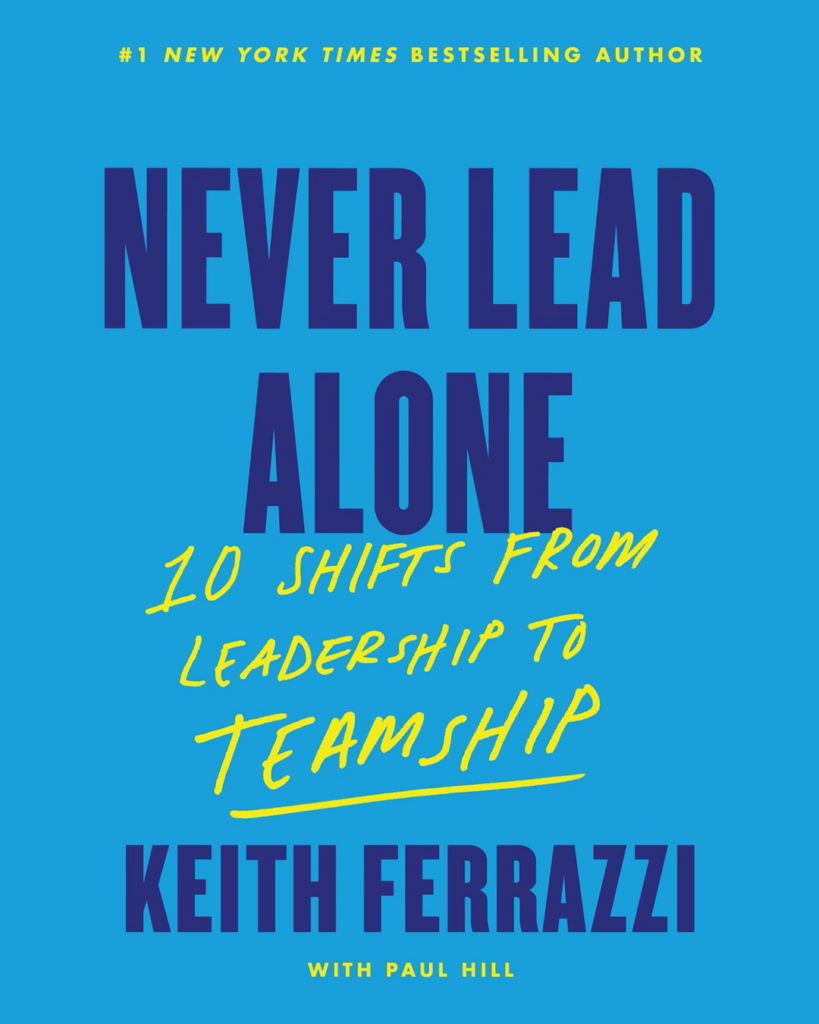[ad_1]
Solely 41 % of group members think about caring, trusting, and supportive relationships exist with their pals. Fifty-eight % of employees say that they perception strangers larger than they perception their very personal associates at work. Setting up relation- ships amongst group members on a foundation of dedication and empathy is crucial to providing an setting of forgiveness and caring ample to drawback each other. Often teams have pockets of broken perception between pals, and left unchecked, this might develop to be deep resentments that erode shareholder value. However all too normally, the group sits by seemingly helplessly enduring poor outcomes, habits, and effectivity. Have you ever learnt of a breakdown in personal relationships in your group that is holding once more agency effectivity?
Traditionally, bond-building occurred when any individual walked down the hall and bumped into one different explicit individual on the watercooler. It was pure. That’s why we hear leaders say they want to see of us get once more to the office; they want that sort of culture-building to happen. Nevertheless the problem with this typical sort of relationship-building, which we might title serendipitous bond-building, is that it happens by likelihood. It’s exactly the kind of unintended bond-building we’ve to switch away from. It was unbelievable in an analog age, however it’s nowhere near environment friendly ample for proper now. We don’t have time to rely upon serendipity when world teams who’re anticipated to hold out audacious duties shortly are thrown collectively and reshaped constantly, normally with no historic previous collectively and with on-line platforms as the primary sort of engagement. Serendipitous bond-building obtained’t reduce it anymore. As an alternative, we wish leaders like Drew Houston, the CEO at Dropbox, who put their ideas to engineering custom, purposefully developing their cultures and by no means letting teams’ connectedness be taken with no consideration. As we’ll see inside the subsequent chapter, Houston shifted Dropbox to a virtual-first enterprise, shifting from ten bodily areas to thirty world neighborhoods, the place in its place of an office, he had small studios of collaboration home geared for vital in-person connection. When Dropboxers get collectively within the equivalent place, it’s to deepen relationships. Nevertheless our evaluation reveals that leaders like Drew who lean in to engineer the behaviors of their teams are the exception. Indicative of this, solely 49 % of group members respect and price what their pals contribute. With no basic under- lying dedication {{of professional}} respect, it is no shock we see vital gaps in just about every group in high-integrity expert behaviors like candor. Relationships are the muse of all productive interaction. Why? Because of perception.
PERSONAL, PROFESSIONAL, AND STRUCTURAL TRUST
Perception exists in three differing types: expert perception, structural perception, and personal perception. One of the best ways this includes life in all probability probably the most for me is in an interaction that I witnessed as soon as I used to be a youthful man. My first job correct out of college was working at a producing plant in Wilmington, Delaware. Ultimately, the union chief acquired right here into the office to talk to the model new plant supervisor. He talked about, “Hey, Joe, I’ve achieved my evaluation, and I’ve to say, you’re a fairly good egg. I known as spherical a bunch of various crops you’ve managed, and I’m glad to have you ever ever proper right here. Nevertheless proper right here’s what we’ve to do. We’ve to go have a drink.” I acknowledged how the union chief started off by acknowledging that he has respect for and perception inside the new plant supervisor on educated basis, primarily based totally on his fame of doing good work. Nevertheless previous that expert perception, the union chief was acknowledging that they needed to develop a non-public relationship and have the flexibility to debate on the side when their representatives didn’t want them to. He meant that they needed to develop personal perception, the sort the place you probably can look some- physique inside the eye and truly think about them, know their values, know that they’re being reliable, and know they’ve extreme integrity and that they care. Then as a result of the union chief left the room, he turned once more and talked about, “All that’s good, by one of the best ways, nonetheless I’m nonetheless liable to make your life hell,” and chuckled. That last assertion was about structural perception—accepting that their roles demand completely completely different views as a result of the union chief’s job may at events be at odds with the plant supervisor’s. There are a lot of structural breakdowns in organizations: boss and subordinate, options which may have further vitality than others, or, similar to the case with the union chief and plant man- ager, teams whose priorities may sometimes battle. Nevertheless on the end of the day, that union chief was so correct. It’s the private relationship that lets you reduce by way of disagreements and structural impediments and assemble the kind of perception you need to work collaboratively. As an example, a head of engineering and a head of selling are going to see the world in any other case professionally. Consequently, they then have to work collectively personally to go looking out widespread flooring and to maneuver points for- ward when difficulties come up. Some of us assume that that’s solely one factor that’s achieved organically or by likelihood. That’s not the case. For years at Ferrazzi Greenlight we now have been opening teams which had been broken, which have held earlier resentments inside them, and, by way of centered work, we now have moved them to being devoted to 1 one other.
Perception is foundational to change. As leaders and as teams we’ve to embrace and acknowledge this. Repeated use of Stress Testing, the teamship comply with we described inside the last chapter, is an efficient strategy to assemble expert perception, on account of the additional a gaggle exercises candor and spends the time to see what each other is contemplating, the additional they develop of their respect for each other and stop dismissing each other attributable to seemingly completely completely different beliefs. Concepts like Correctly, constructive they did, on account of they’ve been educated in any other case, and they also expert varied issues too normally lead to a breakdown of perception and to disrespect when they should lead to curiosity. If in a gathering a pal says one factor you don’t agree with, chances are you’ll say, “Hey, what are you talking about?” Respect is assumed since you might be friends. However when in a gathering any individual you don’t know says one factor you disagree with, it is attainable you may merely hold quiet, contemplating to your self that they’ve their head up their once more end. It’s the private relationship and the model new social contract that allow us to dig deeper to get to the truth. We’ve to assemble that relationship, and we’ve to barter the social contract.

[ad_2]
Provide hyperlink
